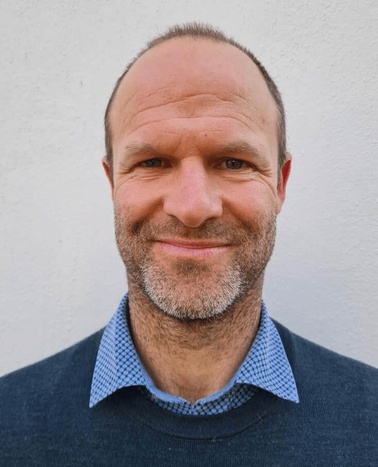
Michael Arbuthnot
I took the scenic route in arriving at my current profession of asset management. I was fortunate enough to receive an athletic scholarship to Boston University in the US, where I had grand ambitions of ultimately being a professional athlete. However, I soon realized that my talent did not quite match my ambition. After initially earning a physiology degree, I went back to school to complete my honors in accounting to become a chartered accountant. As I love to travel, I used my qualification to work in numerous countries around the world, including Bermuda, the UK and Canada, building my experience in asset management. I returned to South Africa in 2011, where I initially led the operational side of an asset management business and ultimately assumed the role of CEO, which I have been doing for nearly four years. I have a wonderful wife and three young kids.

"Leadership—and EQ for that matter—are tangible skills that can be worked on, much like technical skills, and leadership requires skills that can be developed."
DESCRIBE YOUR EXPERIENCE IN THE GLOBAL EXECUTIVE MBA USING ONE WORD.
Challenging.
YOU’VE BEEN BOTH COO AND CEO IN YOUR CAREER. IN WHAT WAY DO THOSE POSITIONS REQUIRE DIFFERENT SKILL SETS?
The role of CEO can be a lonely position. Yes, you have a board of directors to support you, but ultimately you need to make the final decision and take responsibility for it. As COO you spend most of your time implementing strategy and dealing with the day-to-day issues that arise. As CEO, you spend a lot of time considering the longer-term impact of various decisions and how they support or align with the strategic direction of the business.
WHAT DID YOU LEARN ABOUT LEADERSHIP DURING THE PROGRAM?
That you need to do your research, be brave, and then have the conviction to carry out your ideas. I have come to realize the importance of EQ in being a good leader and that really great leaders have humility to match. Leadership—and EQ for that matter—are tangible skills that can be worked on, much like technical skills, and leadership requires skills that can be developed.
WHAT’S THE BEST PIECE OF ADVICE YOU’VE RECEIVED IN YOUR CAREER SO FAR?
“Thinking around corners”—that is, there are many ways to solve a problem, and each problem has many solutions.
CAN YOU TELL US ABOUT SOMETHING UNEXPECTED THAT YOU LEARNED DURING THE PROGRAM?
Somewhere, somehow, I found an extra 20 hours each week. This tells me that we can always stretch ourselves further. I really enjoyed being challenged and driven to be as efficient as possible.
WHAT’S SOMETHING THAT YOU LEARNED FROM YOUR PEERS IN THE PROGRAM?
Although the peer group was extremely geographically diverse, we still had a great deal in common—more so than I would have expected. Business challenges and related solutions are similar the world over.
WHAT’S YOUR FAVORITE MEMORY OF THE GLOBAL EXECUTIVE MBA?
Unfortunately, I have not yet met the team in person. However, I feel that the relationships I have built with my groups are unusually strong. I was told this would happen in an MBA program, but it is wonderful to see it play out.
WHAT MADE YOU DECIDE TO ENROLL IN THIS PARTICULAR PROGRAM?
Price, ranking and the amount of time spent face to face all played a role. With my job and family, I was only able to take a certain amount of time away from Cape Town. This program, along with its ranking and value, worked perfectly for me.
CAN YOU TELL US ABOUT NETWORKING OPPORTUNITIES SO FAR?
These have been limited given that I have not had an opportunity to meet my peer group in person.
HOW HAS YOUR EXPERIENCE IN THE GLOBAL EXECUTIVE MBA PROGRAM IMPACTED YOUR ORGANIZATION?
It has helped me become a more confident and mature leader; hopefully, this will have a positive impact on the overall success of my business.